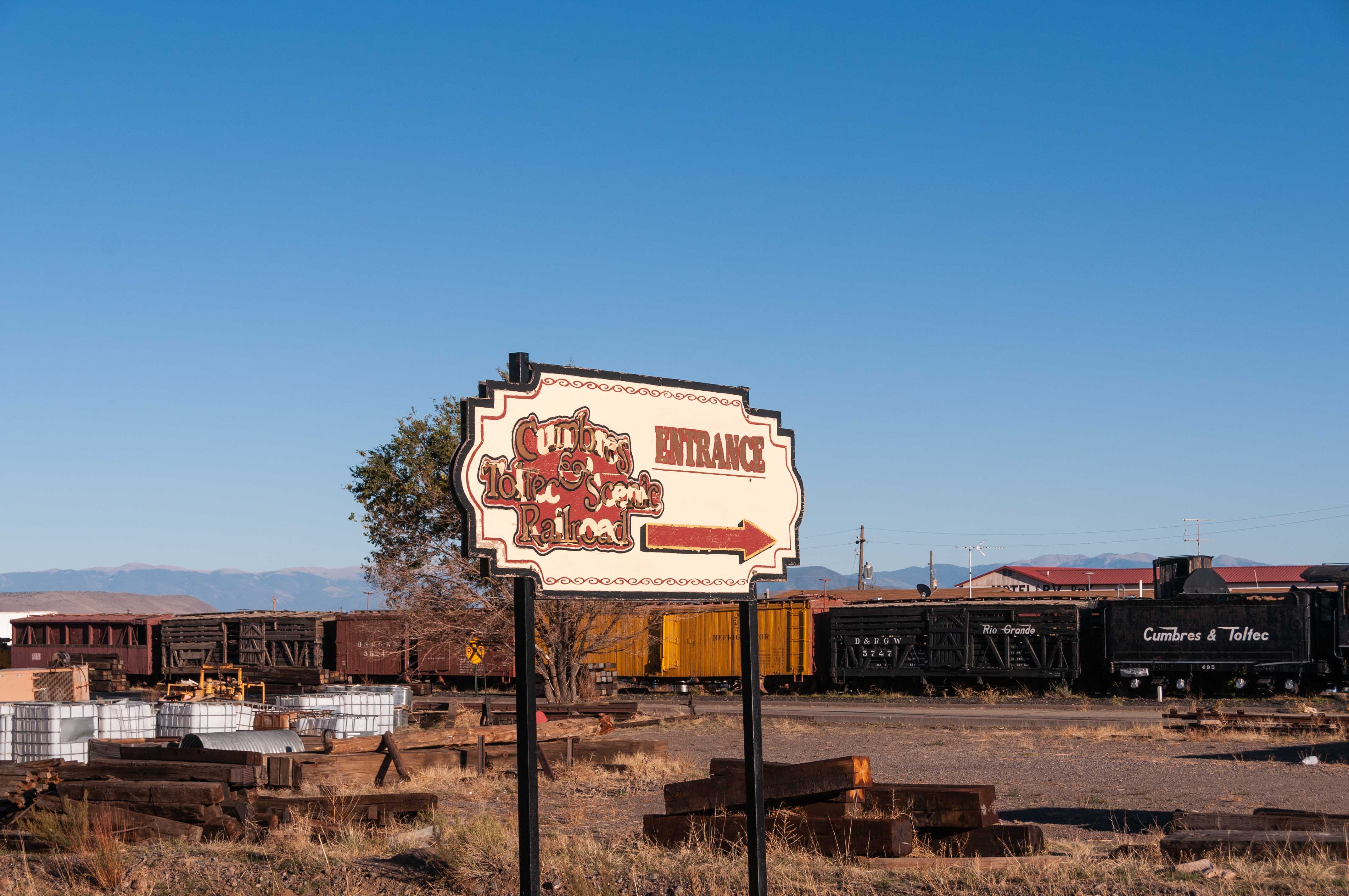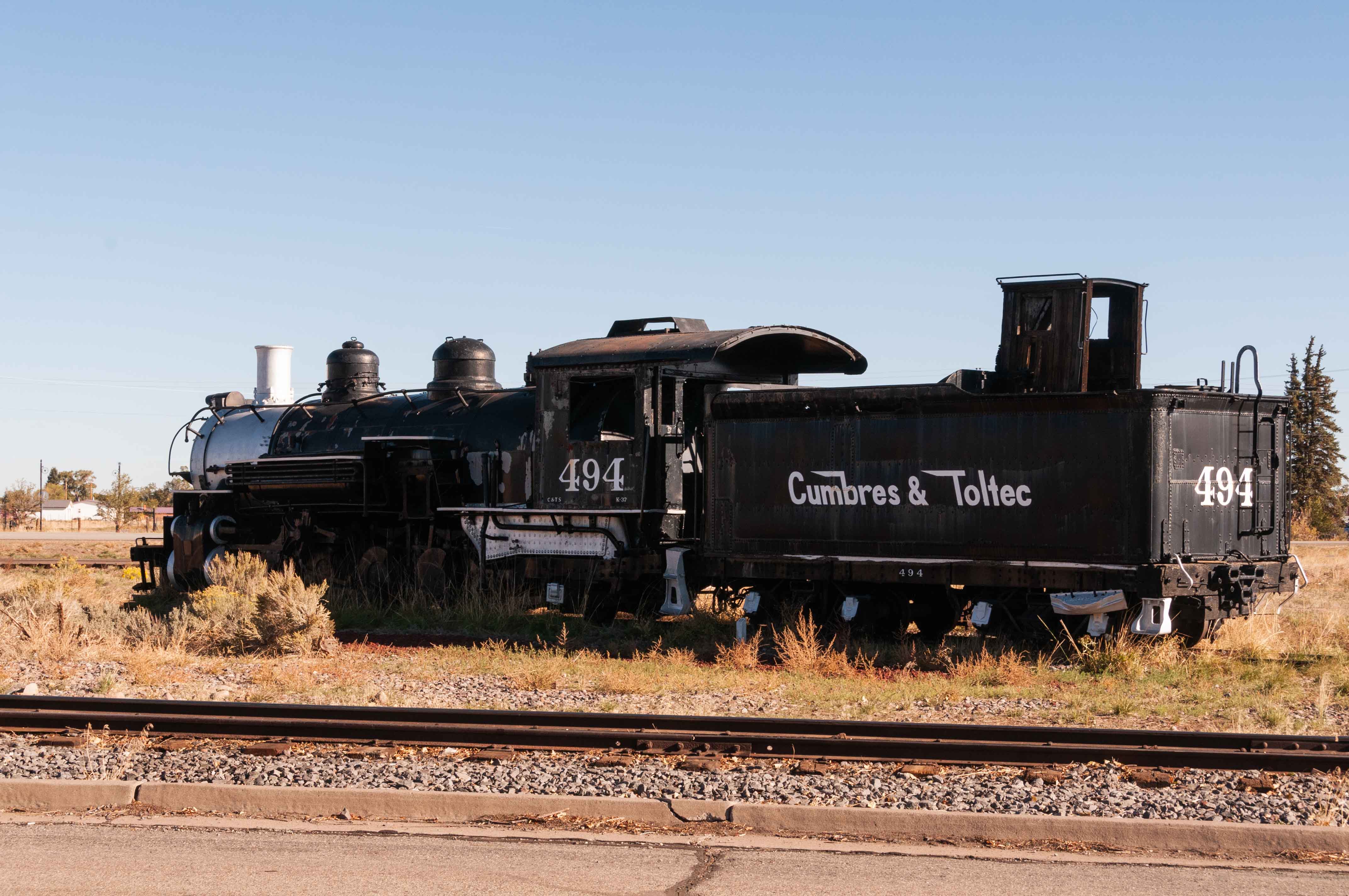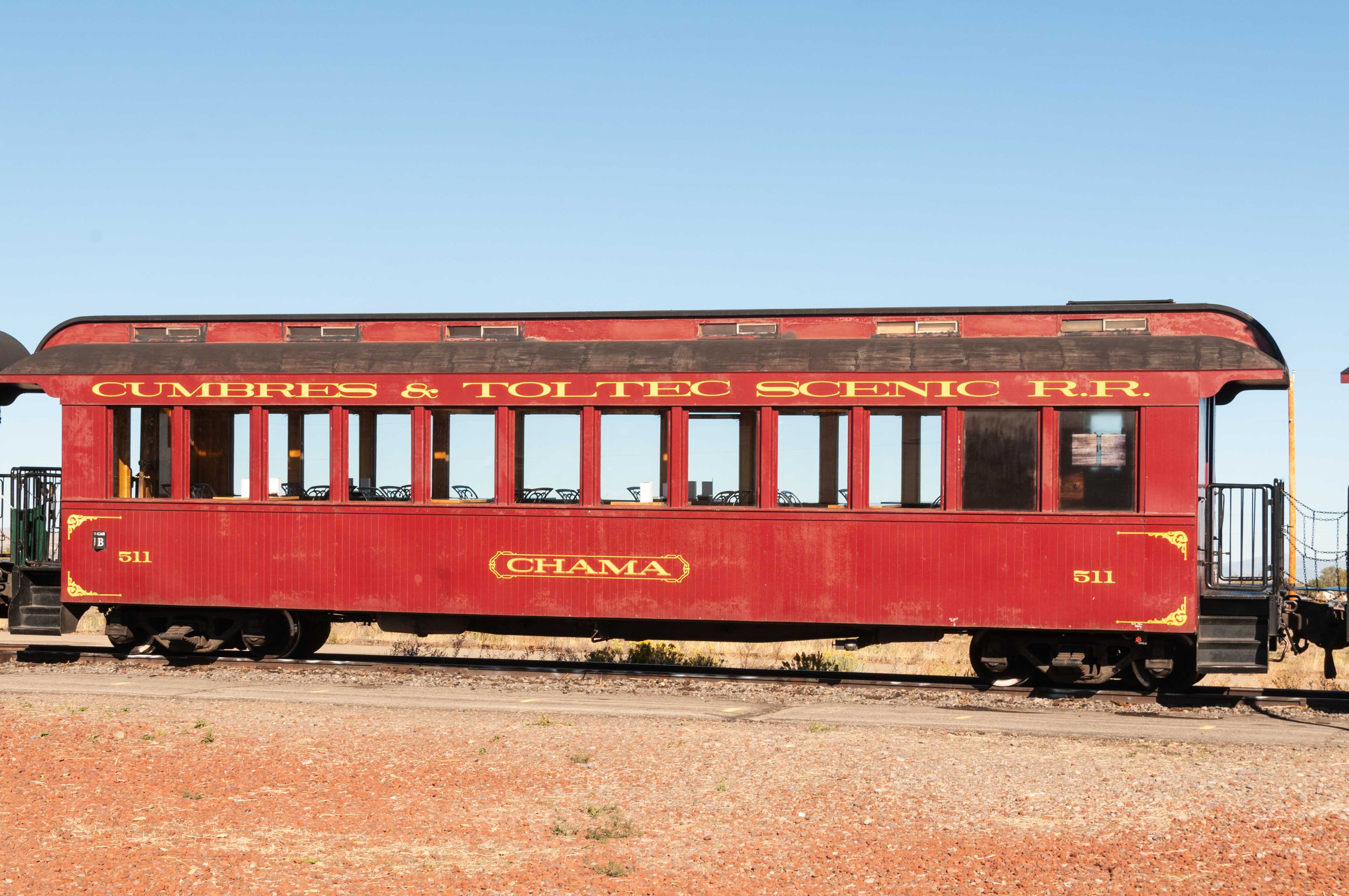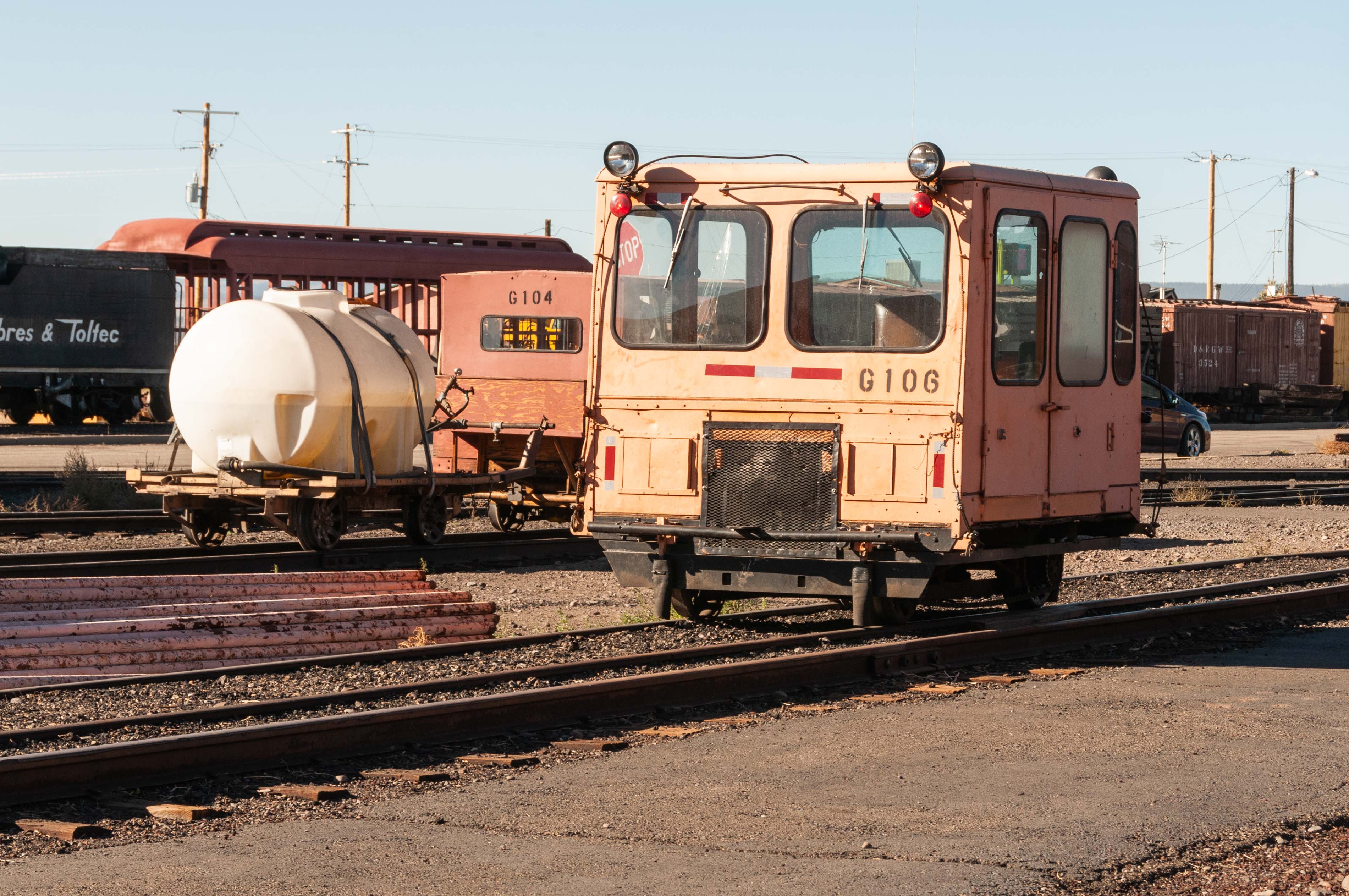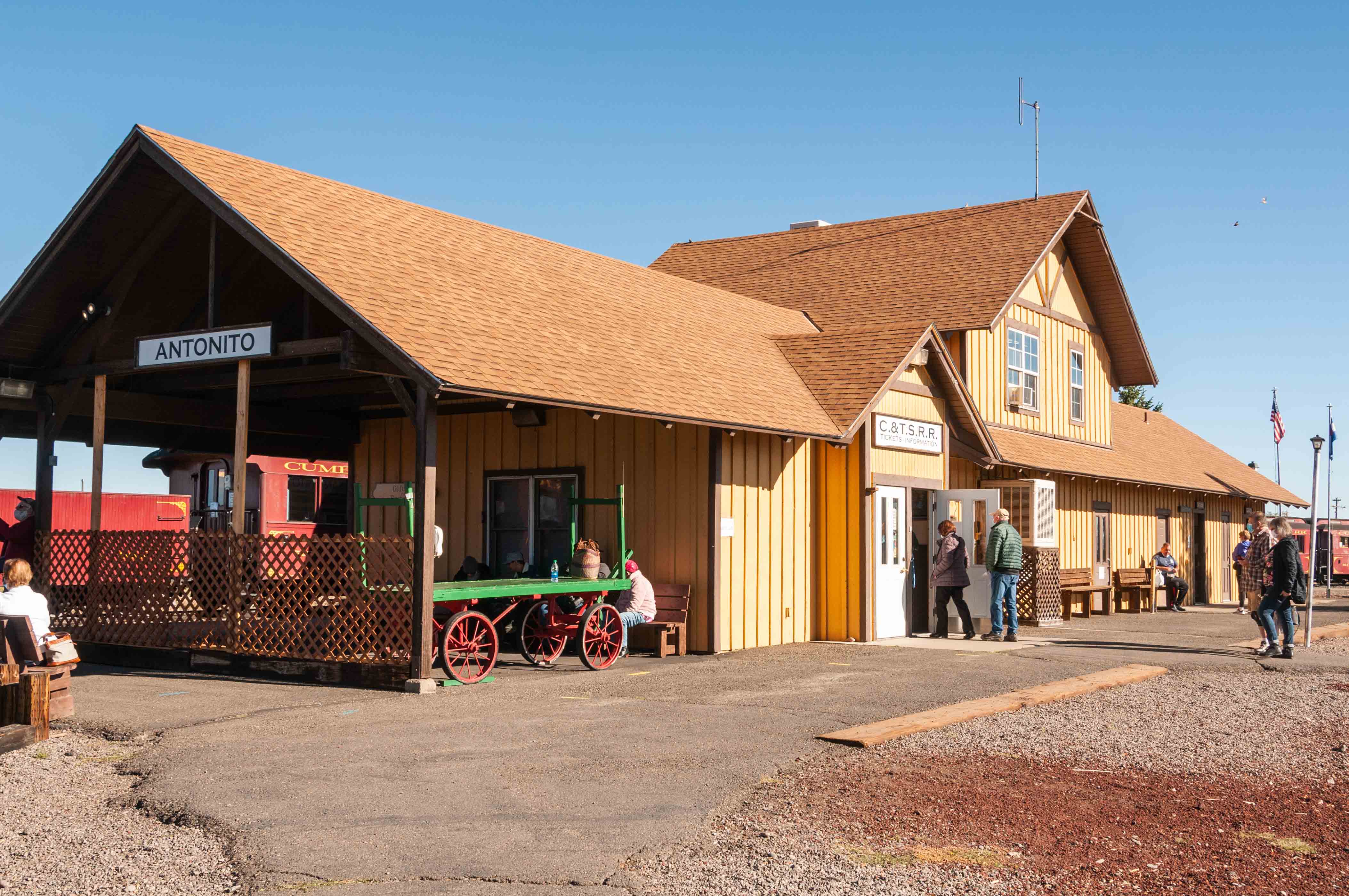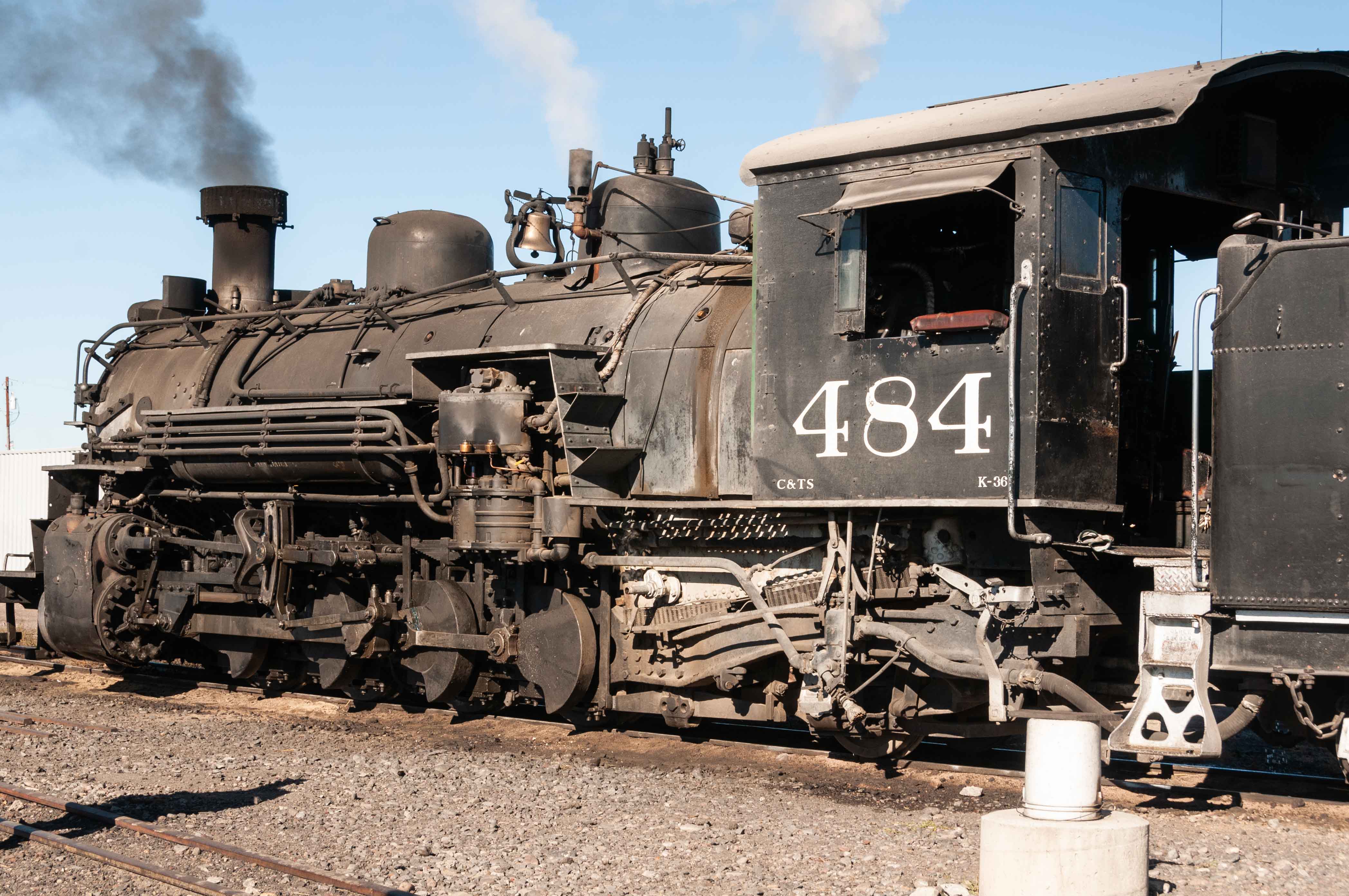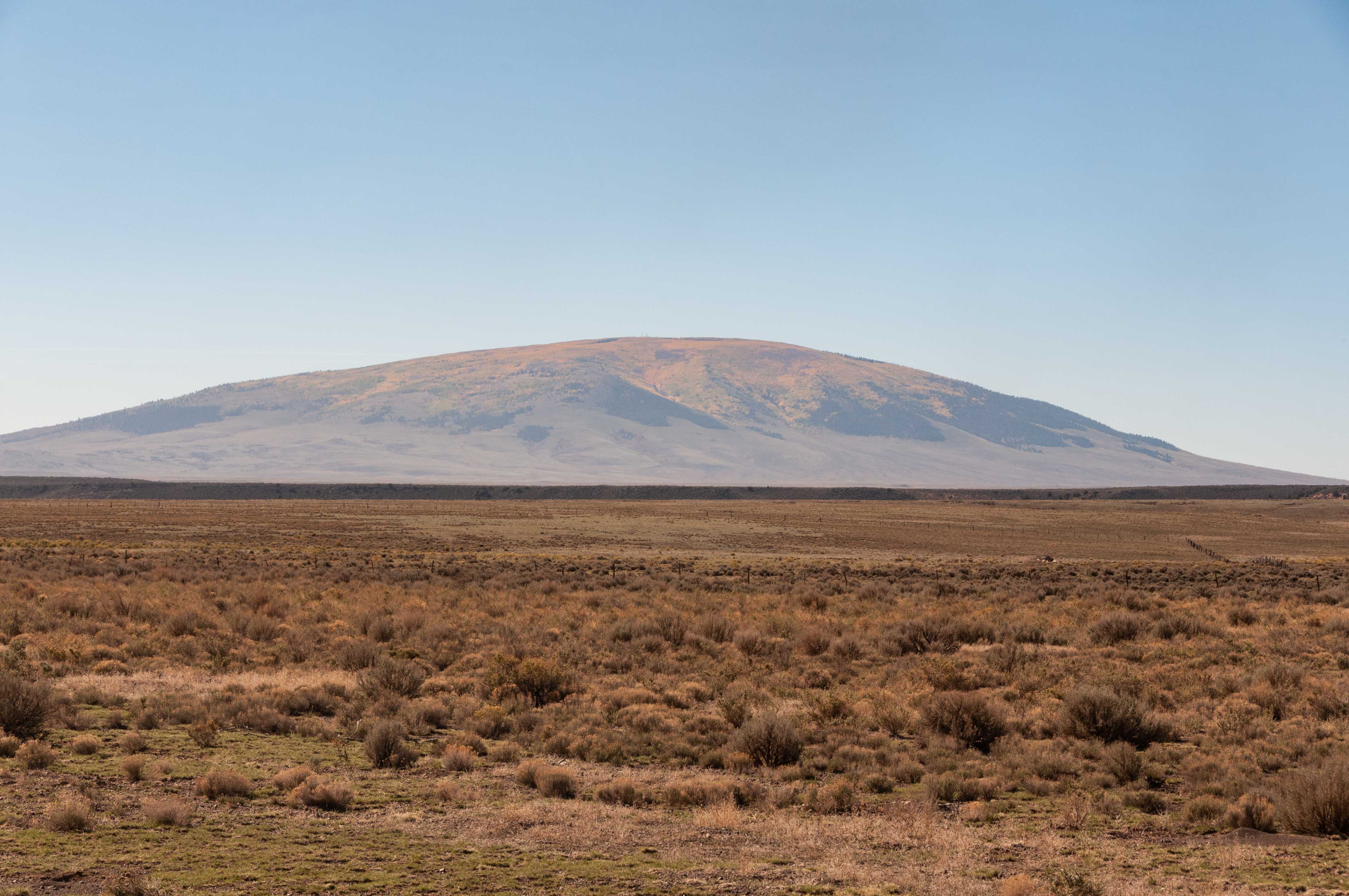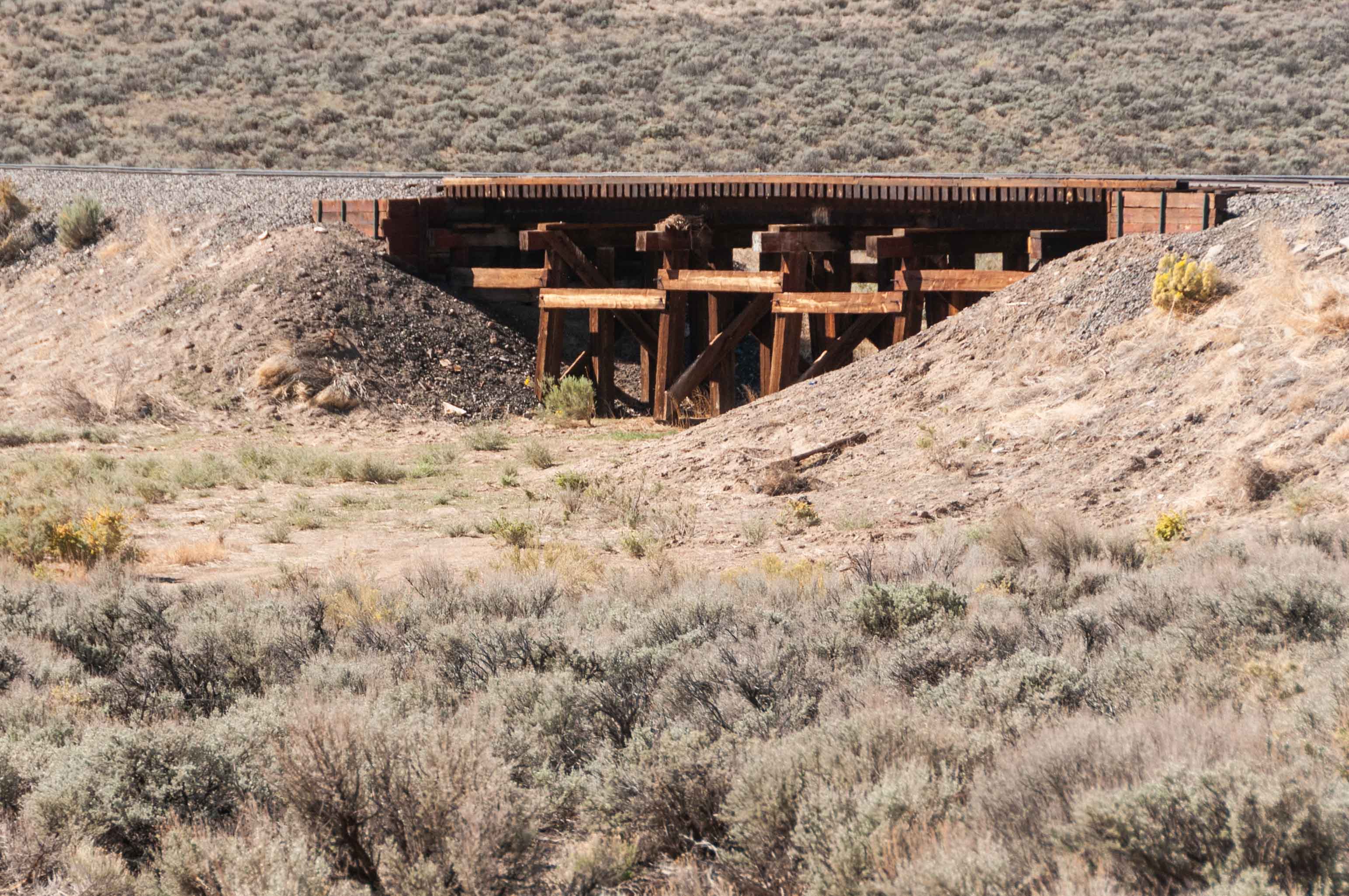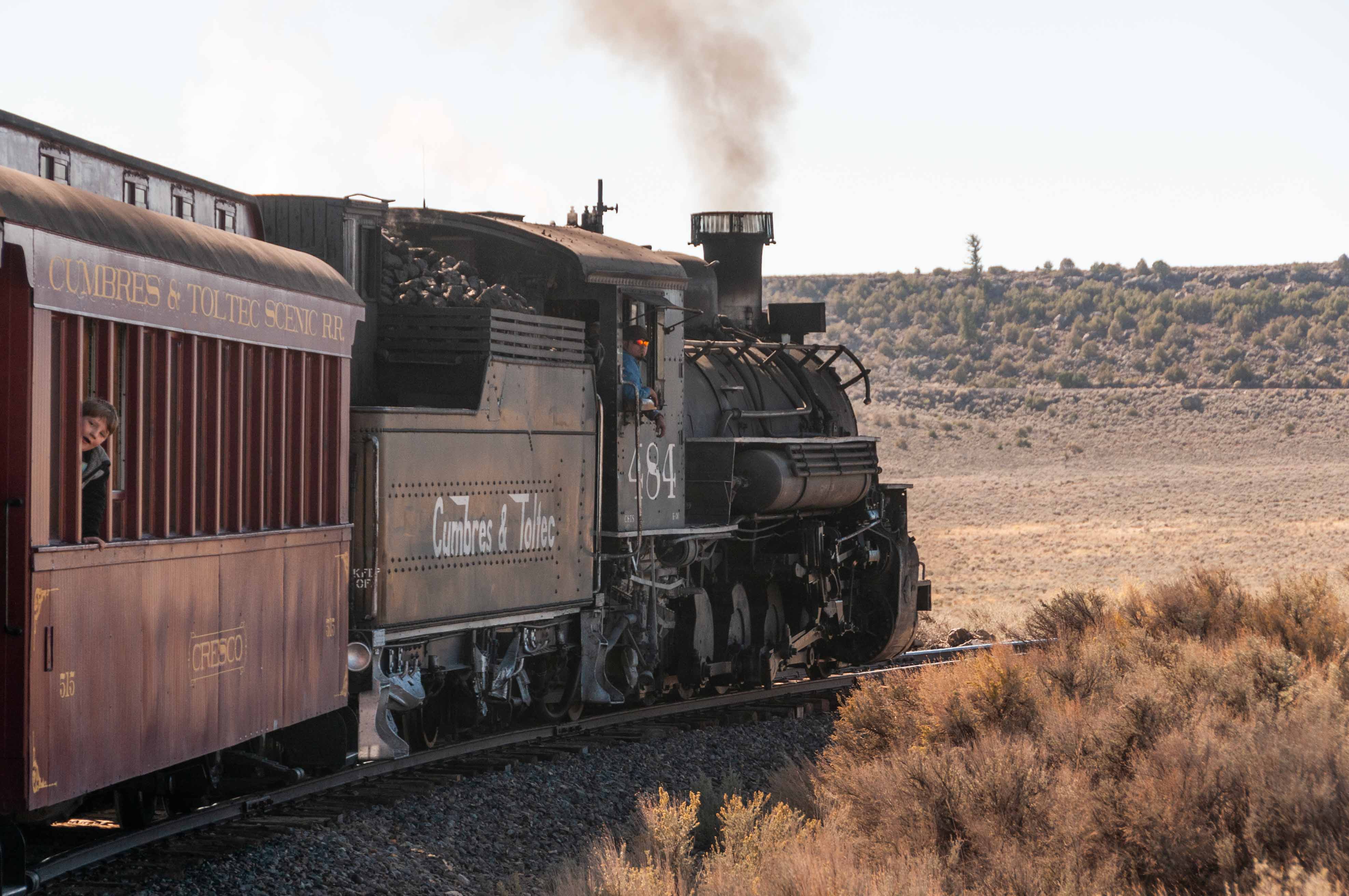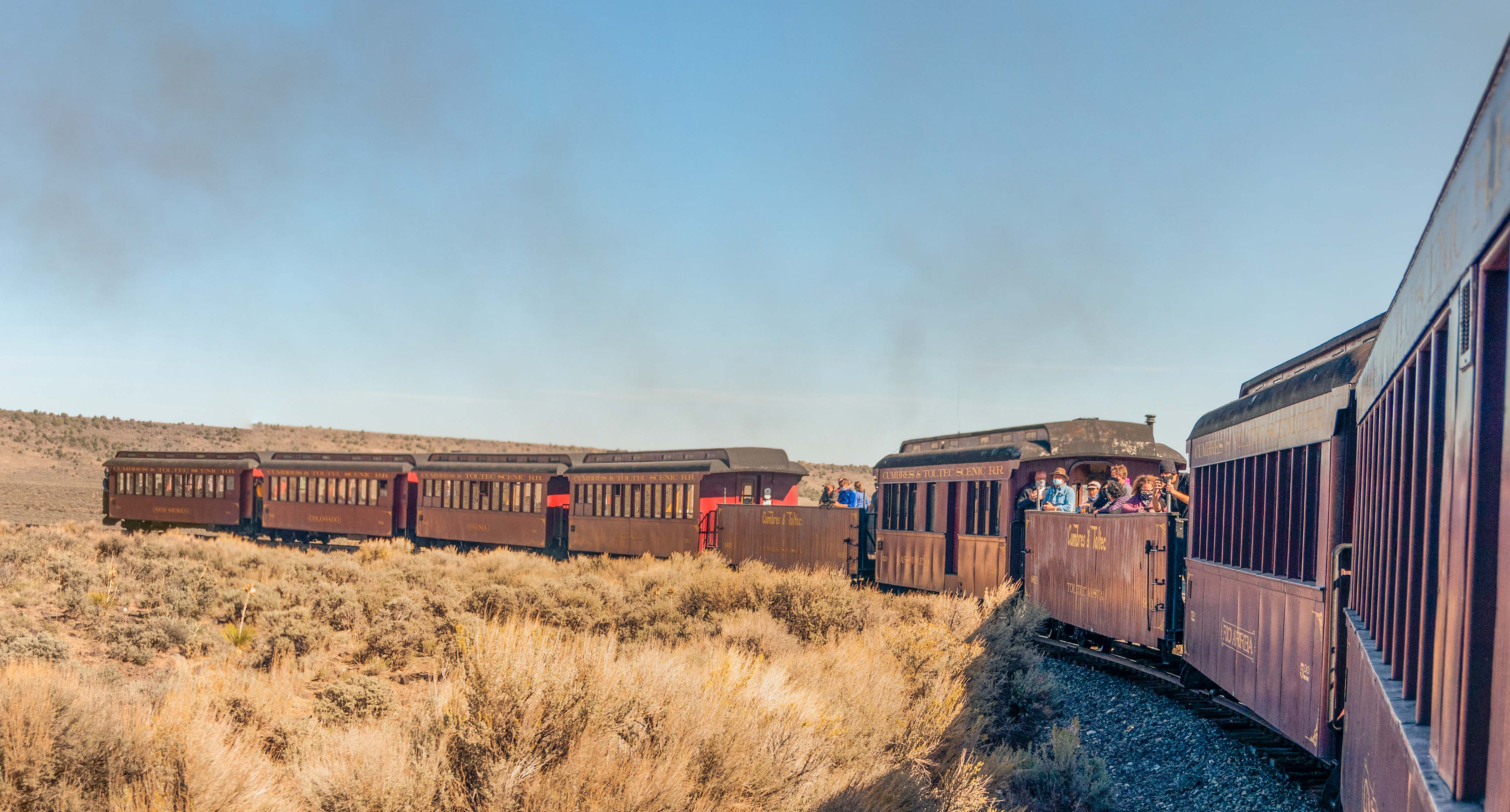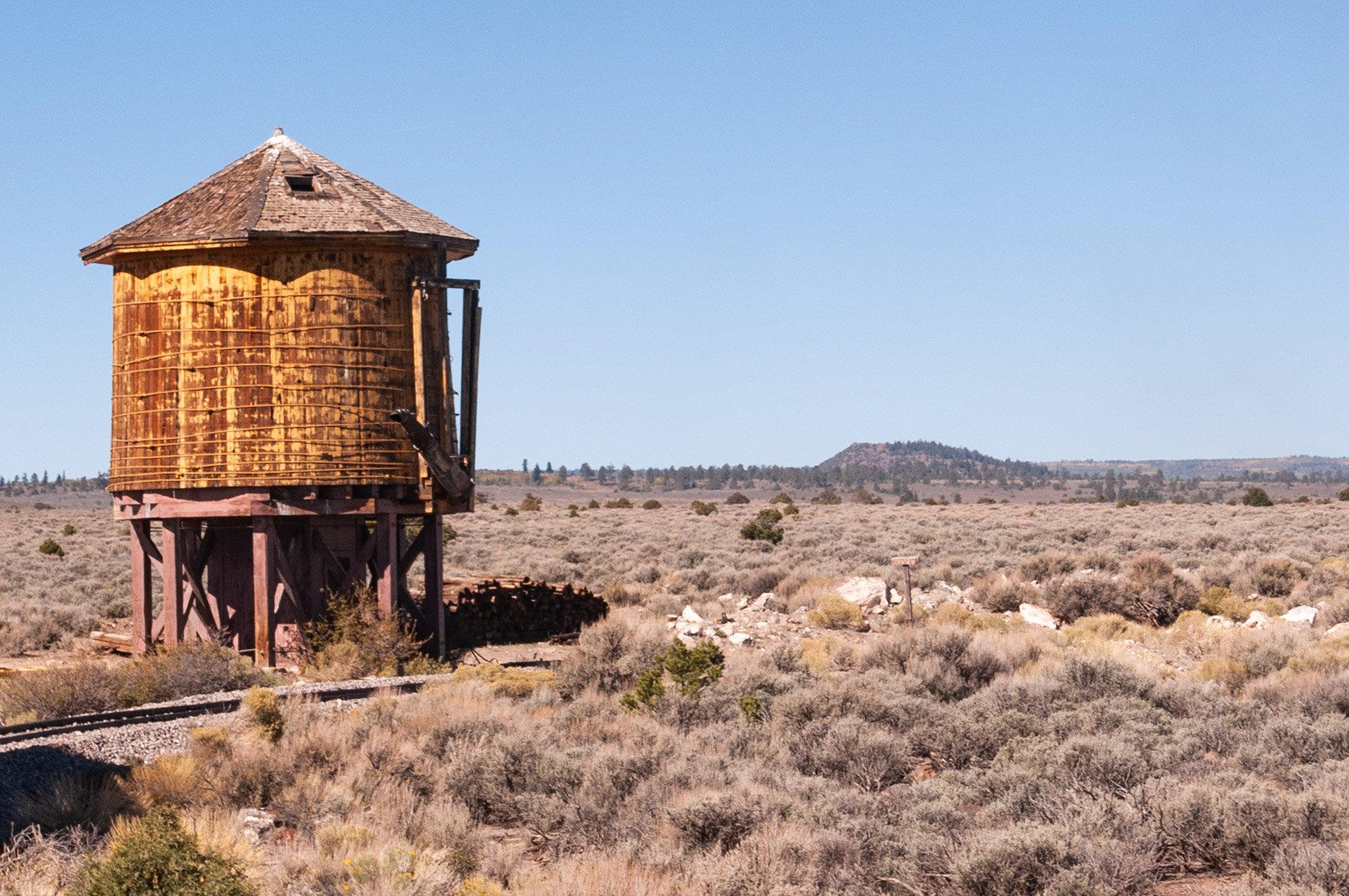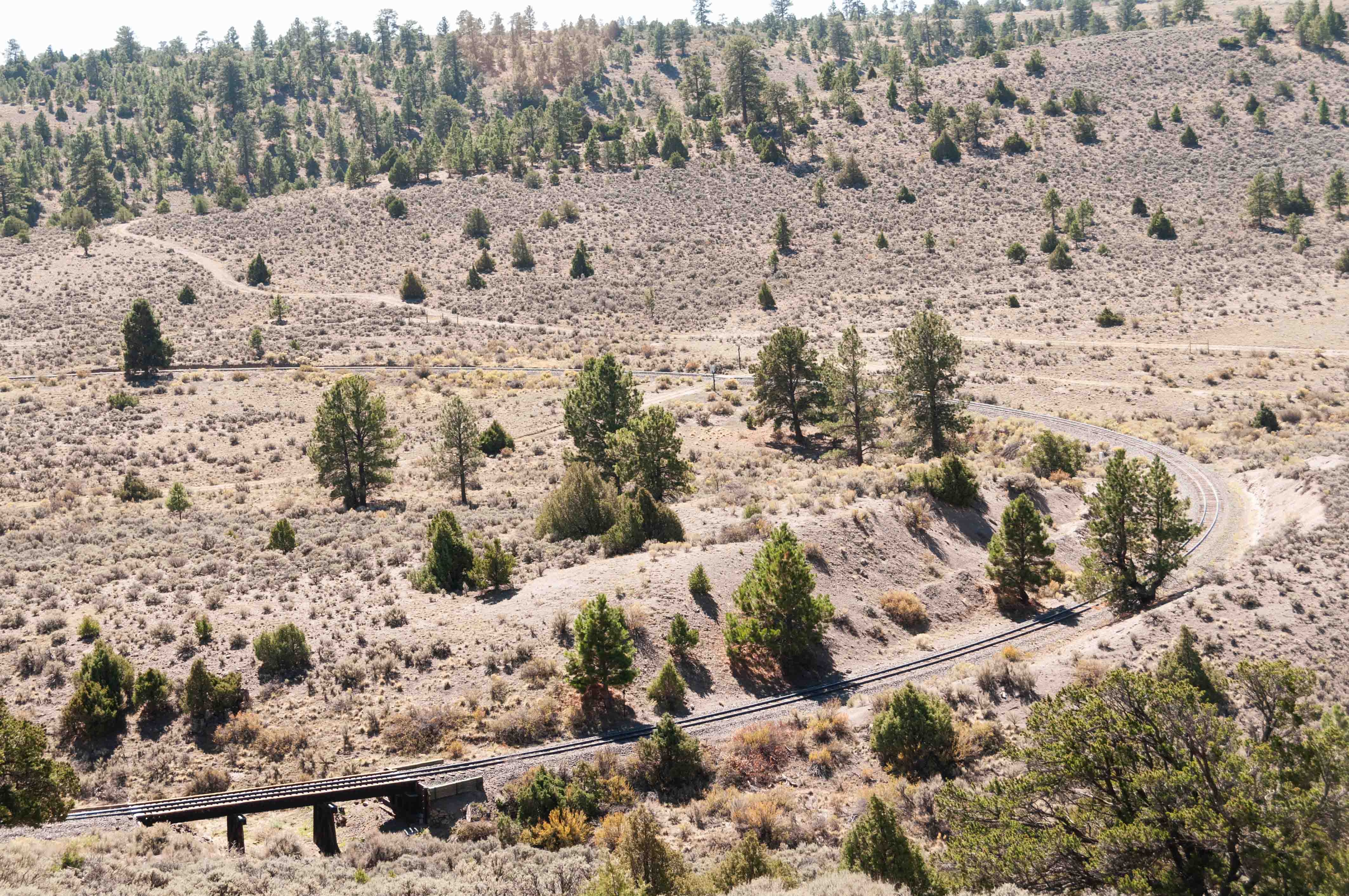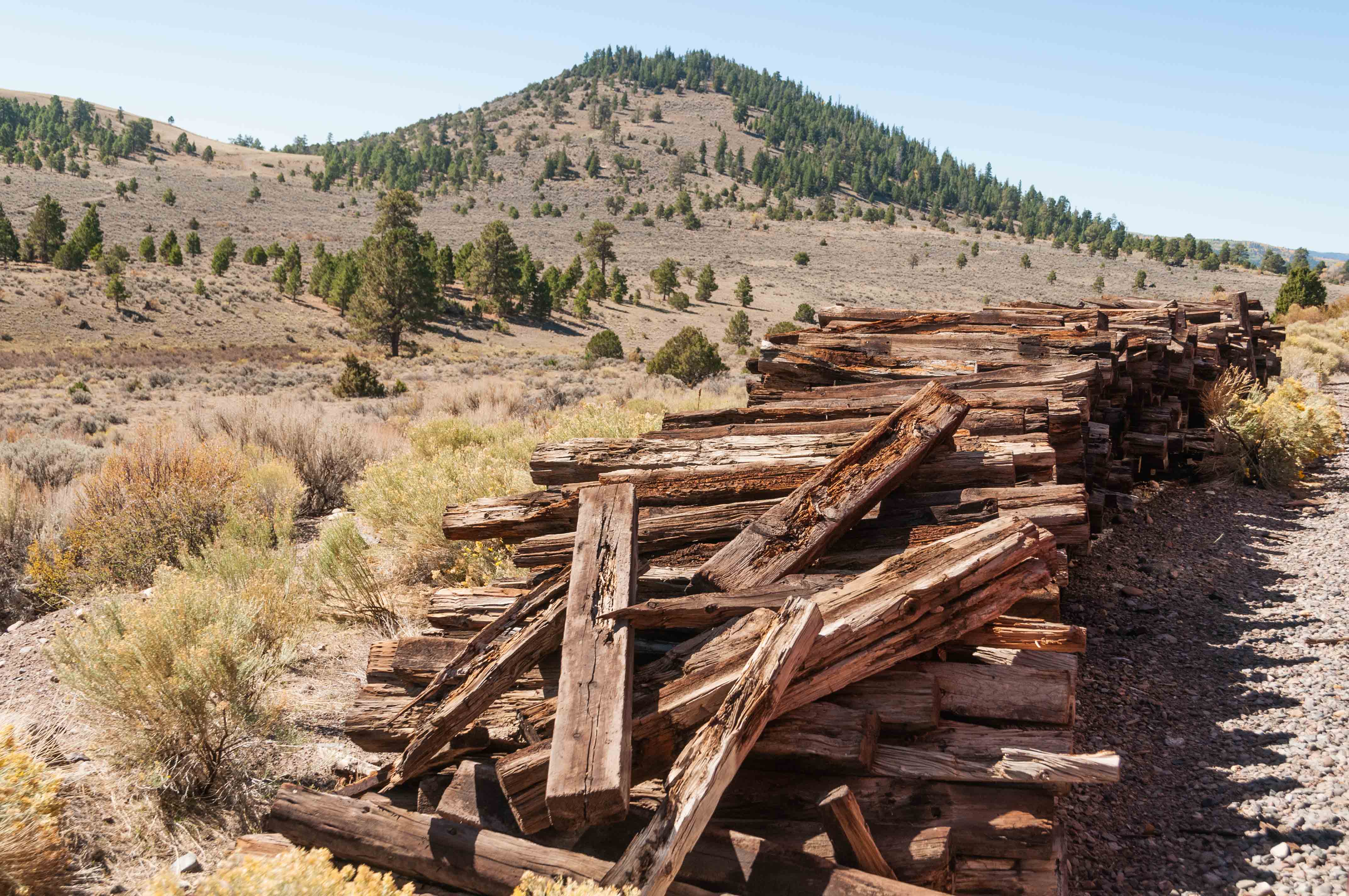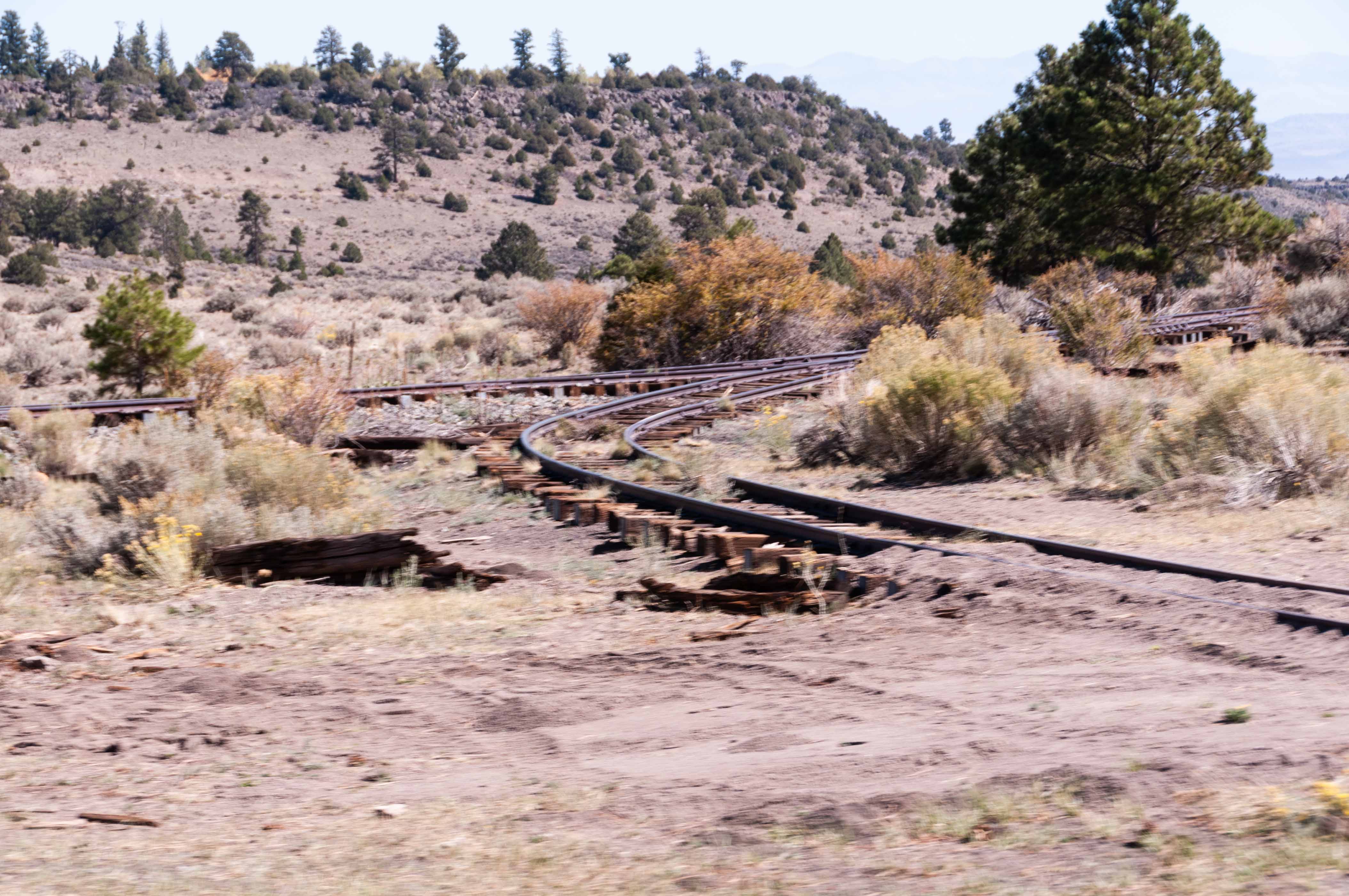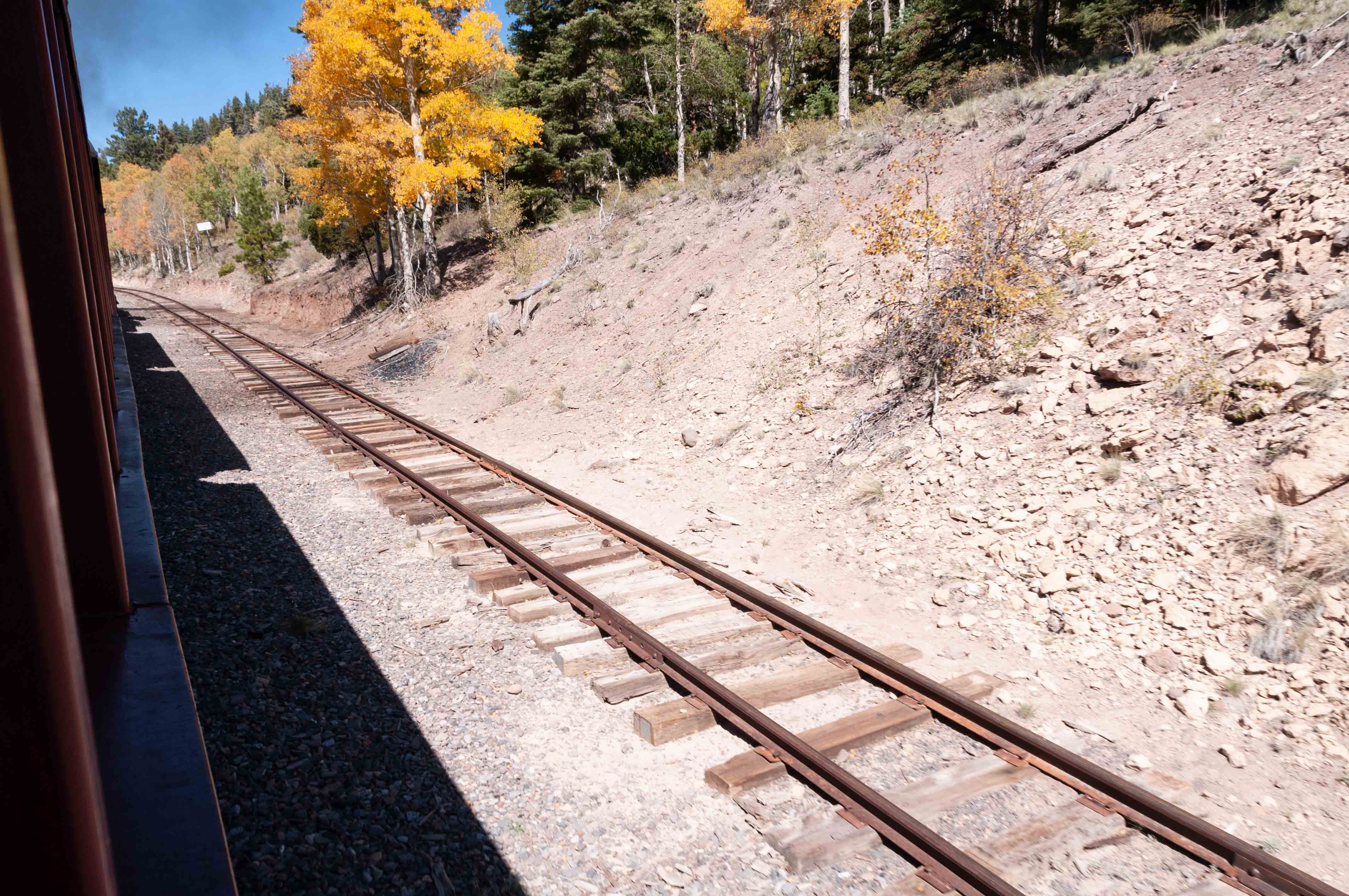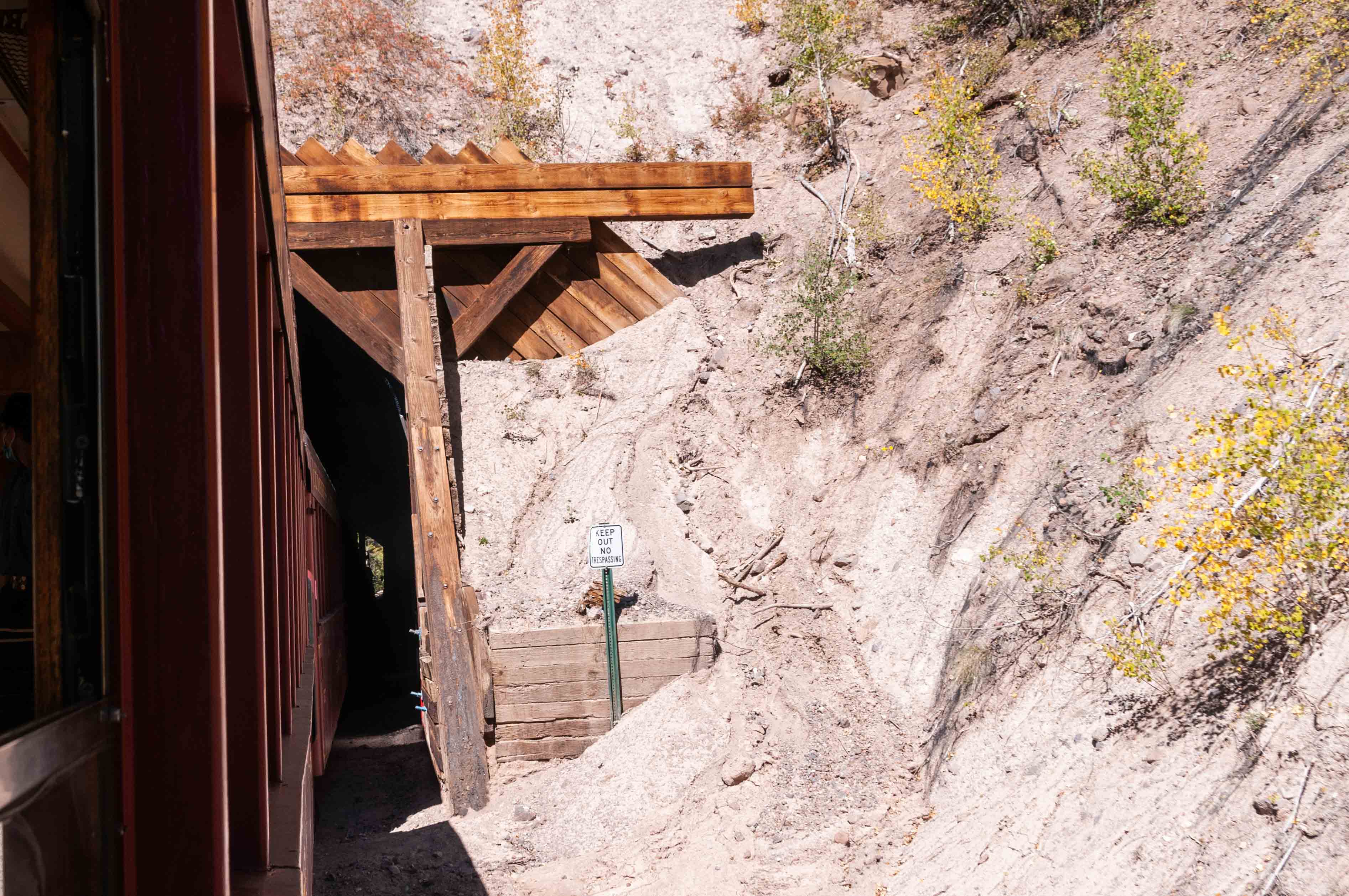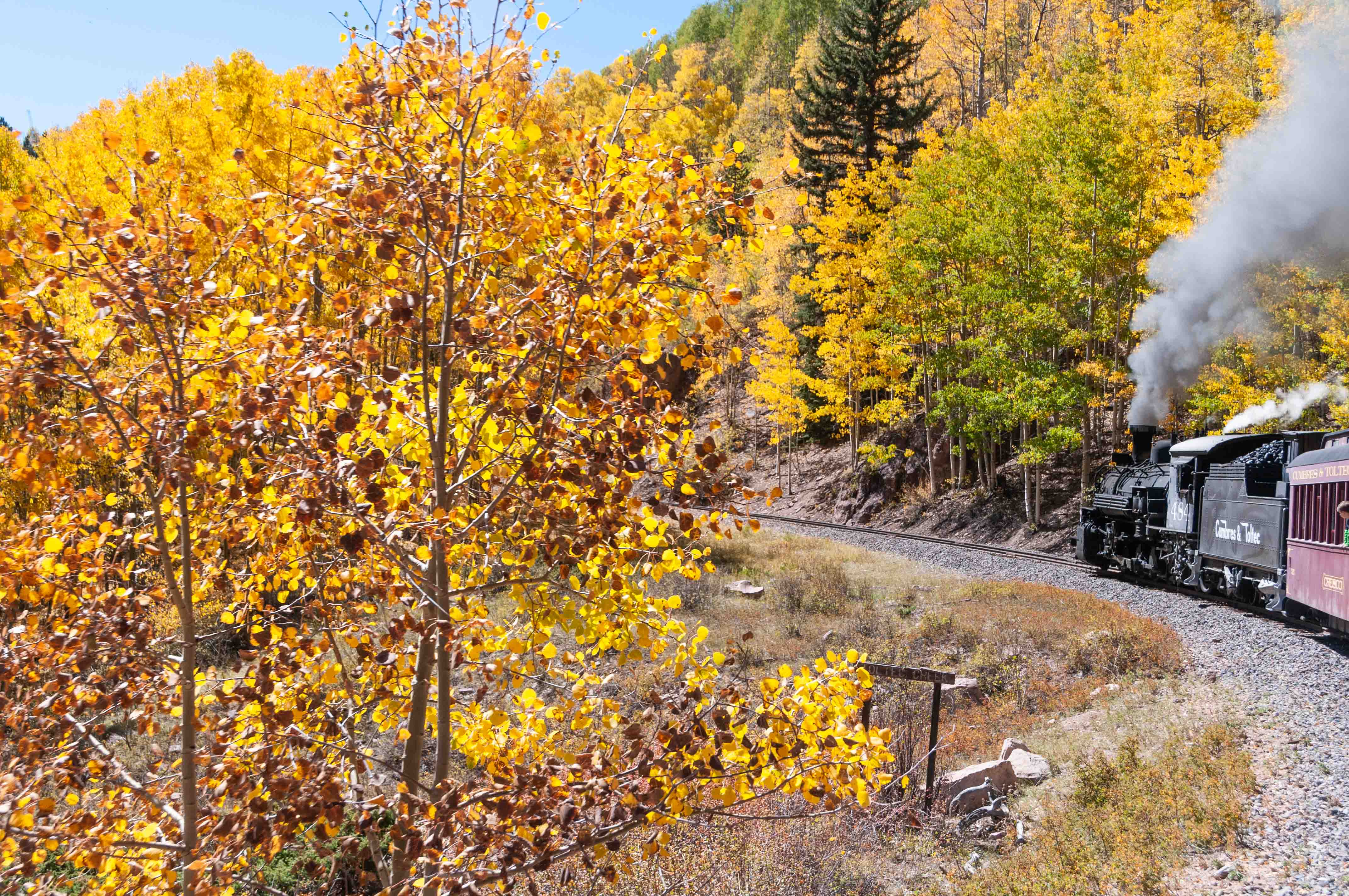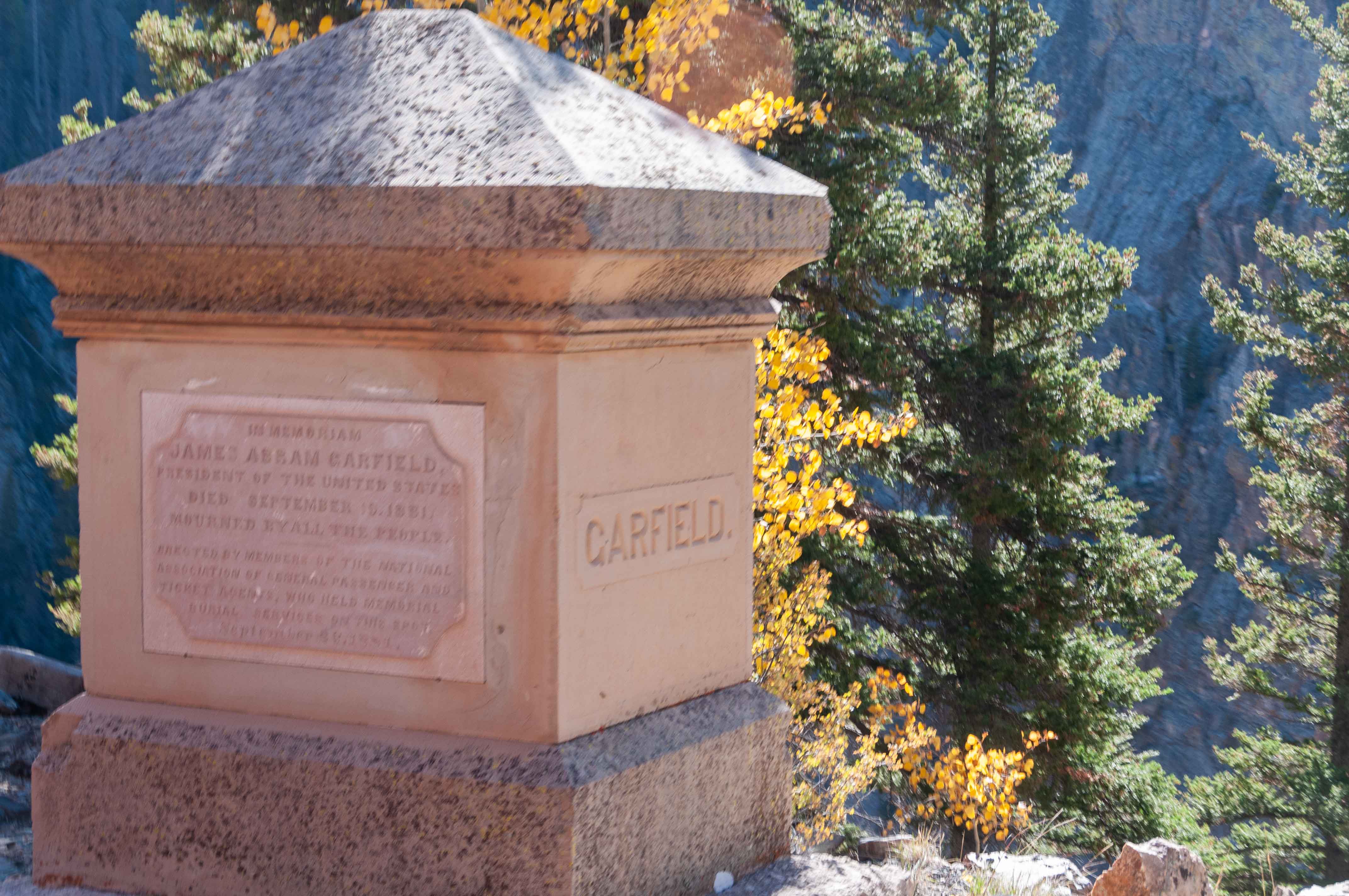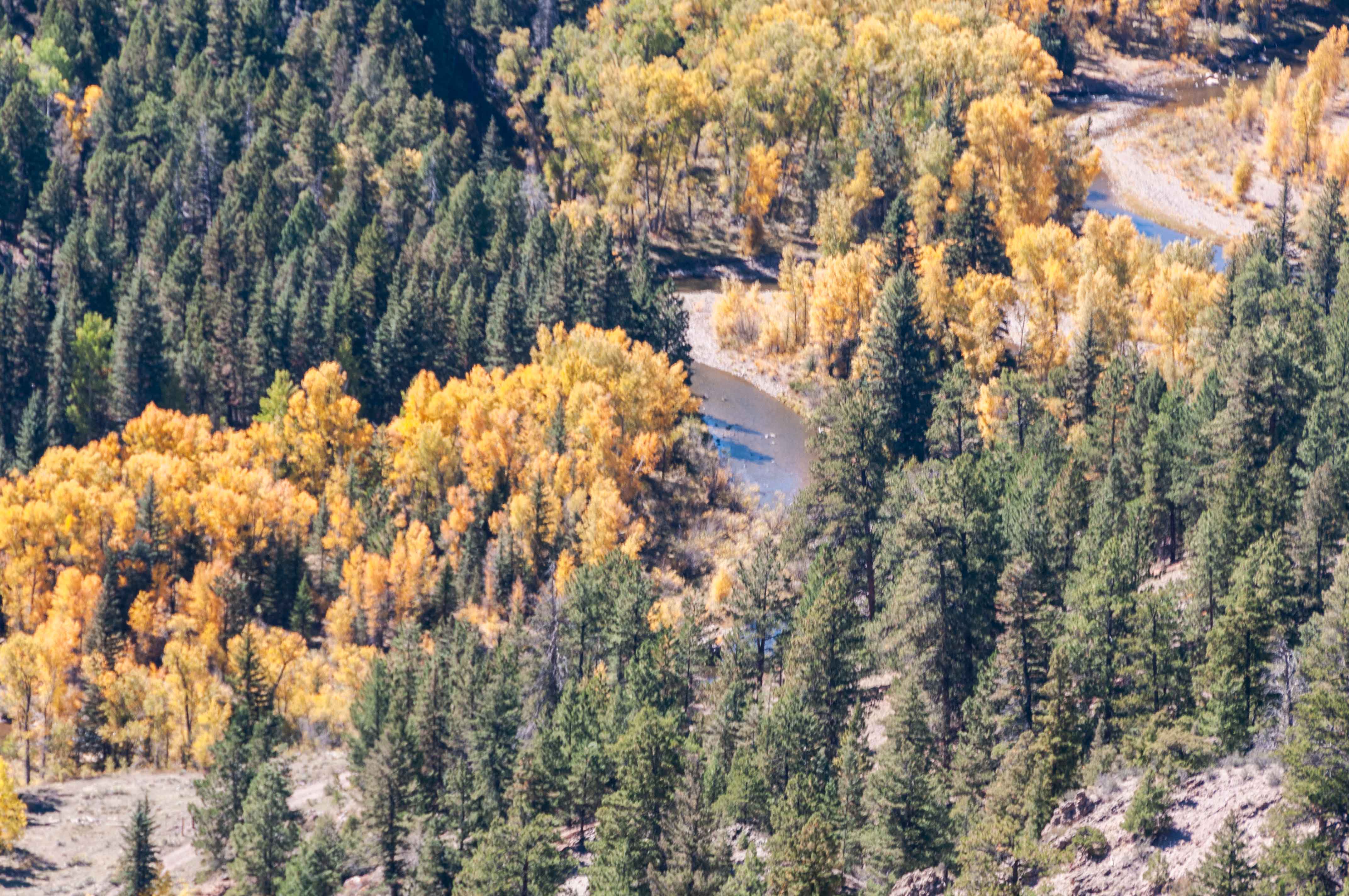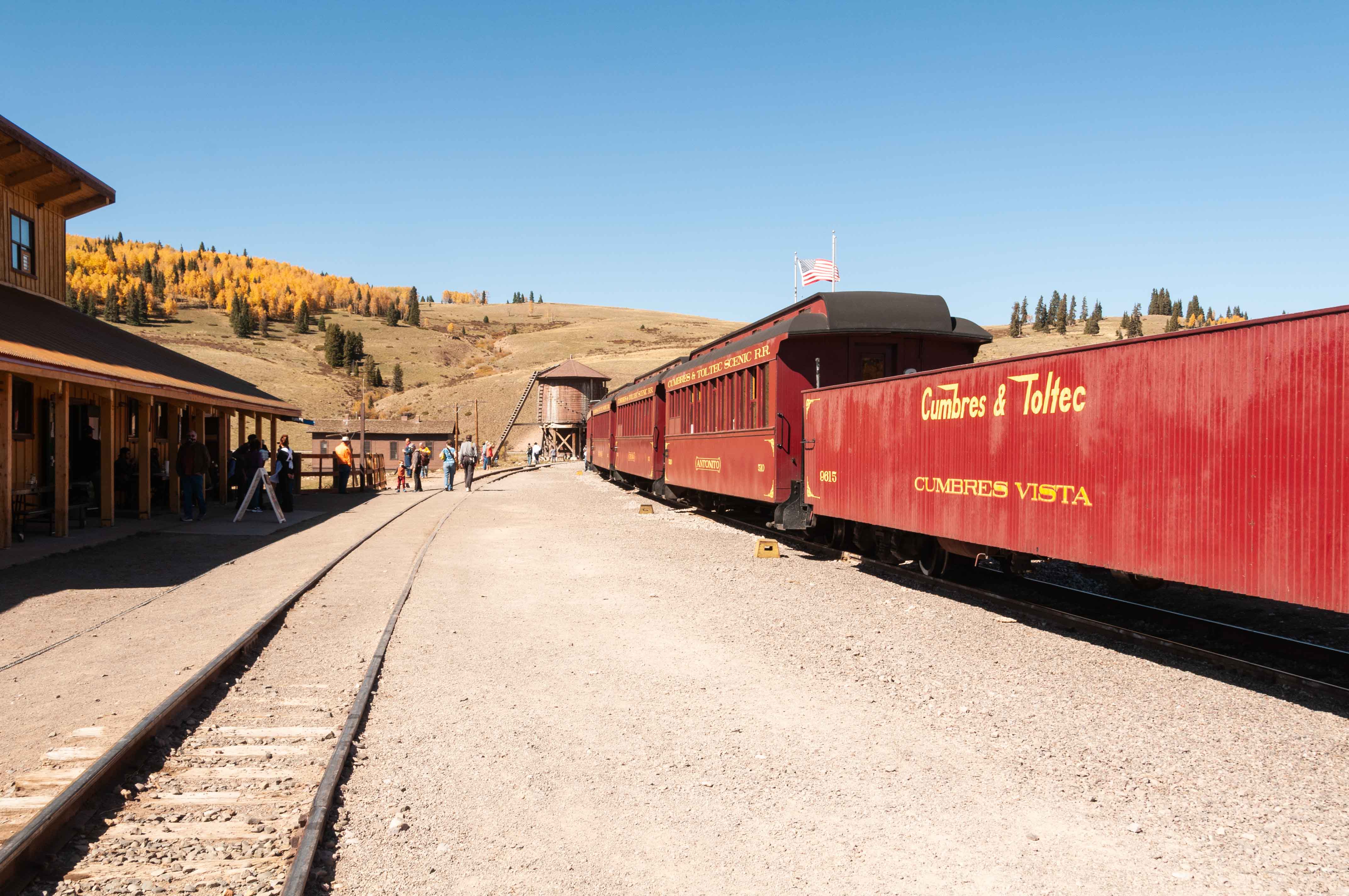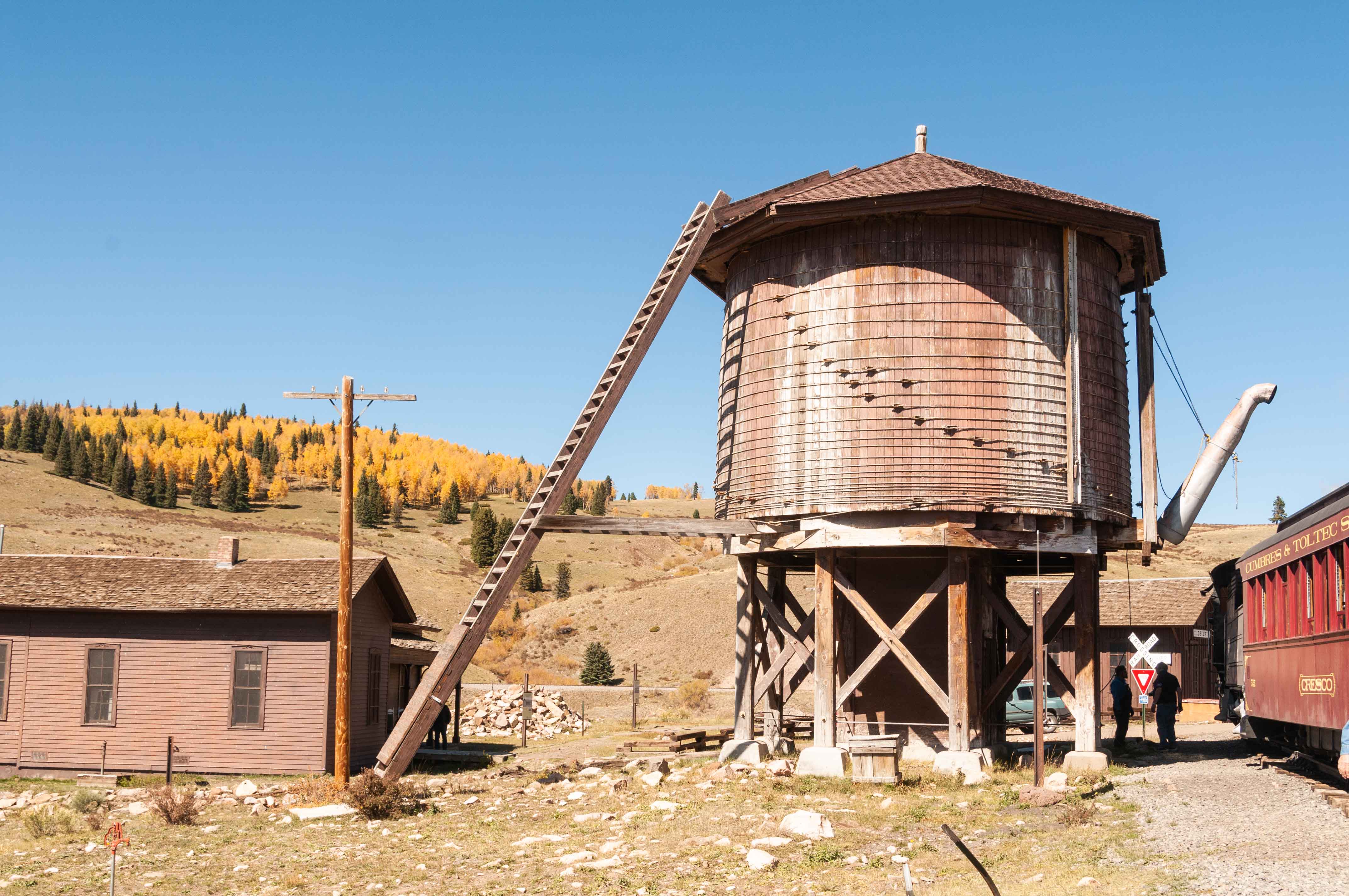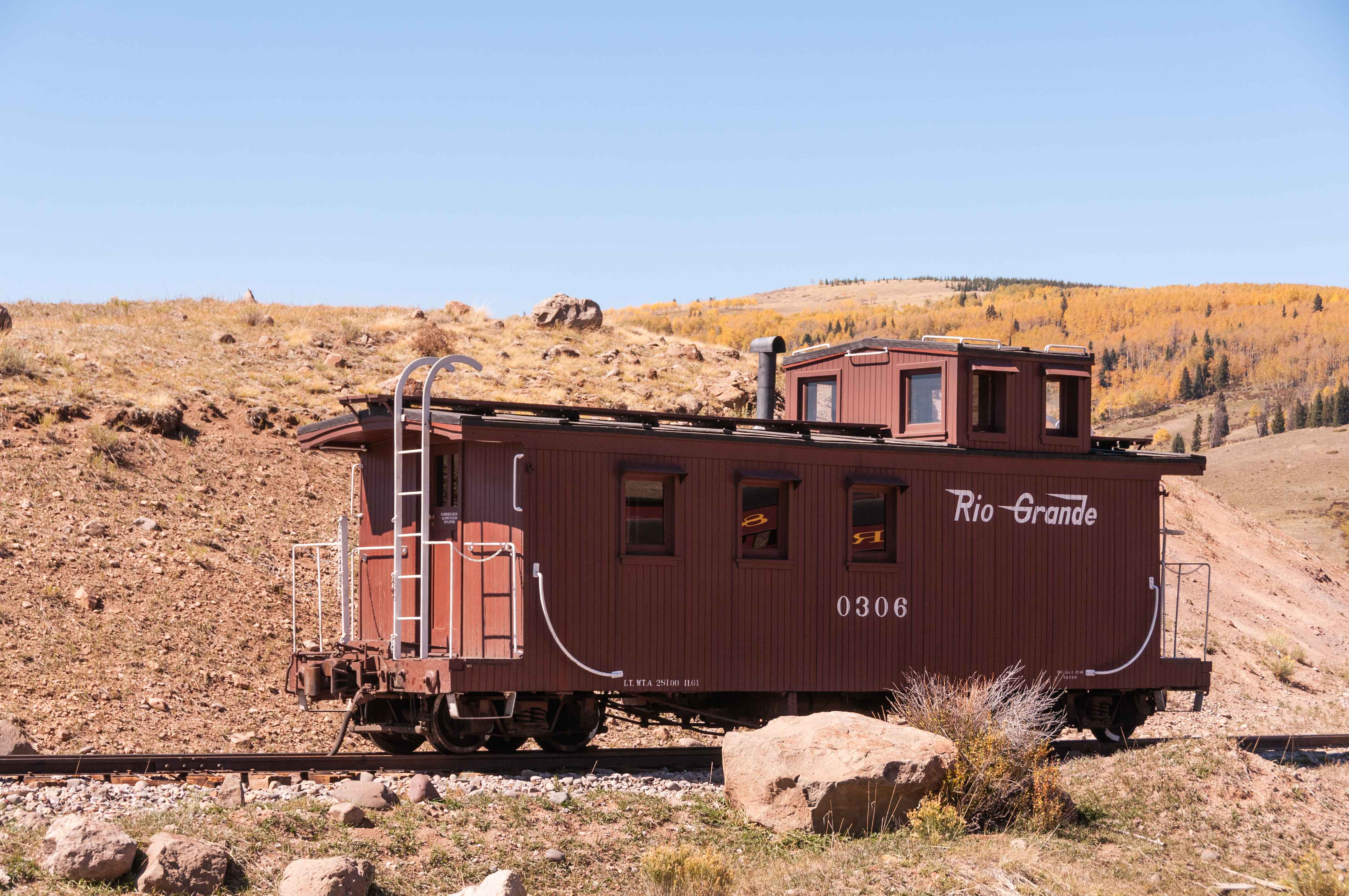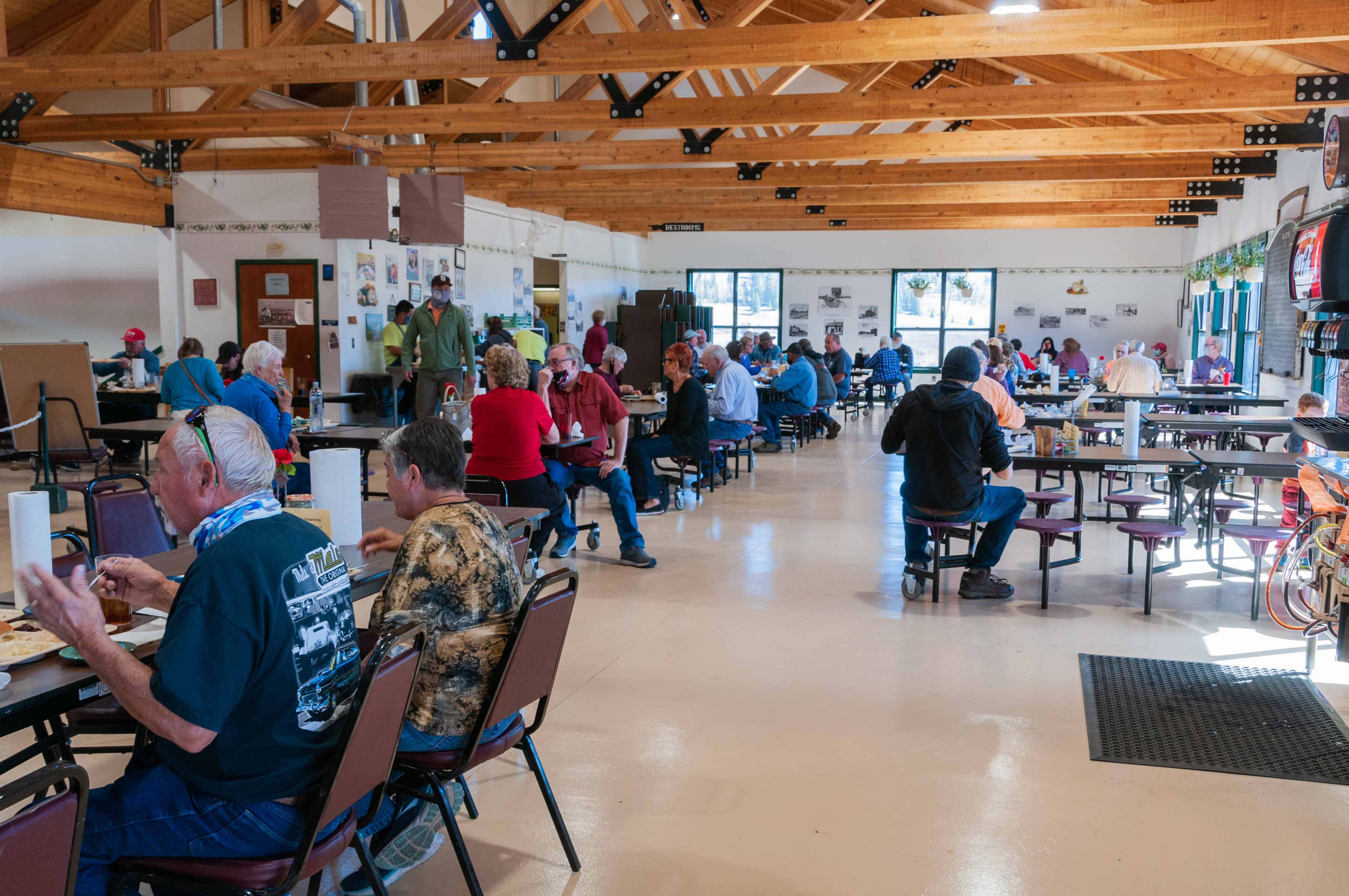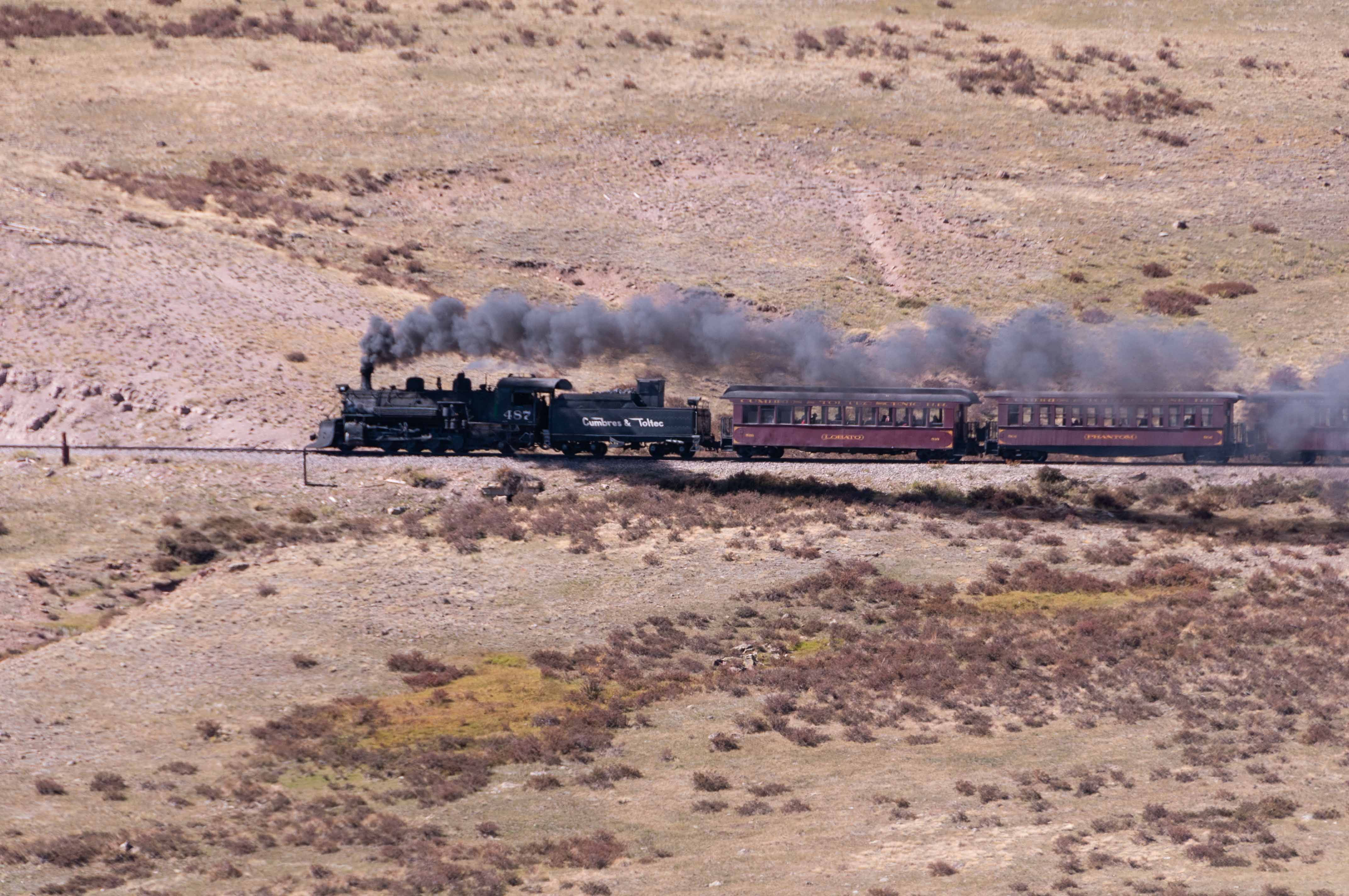Ride the Rails on the Cumbres & Toltec Scenic Railroad
The Cumbres and Toltec Scenic Railroad is part of what was originally the Denver and Rio Grande Western Railroad narrow-gauge network.
The Cumbres & Toltec Scenic Railroad runs between Antonito, Colorado and Chama, New Mexico on 64 miles of narrow-gauge track (3 feet between
rails). The railroad has been jointly owned and operated by Colorado and New Mexico since 1970. The railroad normally offers 9 different trips,
most combining travel by both train and bus. However only two trips are offered during the COVID pandemic, a round trip from Antonito
to Osier and back, and a round trip from Chama to Osier and back. (I might mention here that masks are required for the duration.
Anyone refusing to wear a mask is put off the train). Our trip will start from Antonito. The train averages about 10 or 11 miles per hour, and
crosses back and forth between Colorado and New Mexico 10 times on its 37.7 mile trip to Osier. So let's get rolling.
The Cumbres & Toltec Railyard is located just off US 285 in Antonito. There's a lot to see, including the rail car shop,
railroad depot, lots of rolling stock, and other odd and ends, so get there early. The train pulls out of the station promptly at 10:00 AM.
Engine 494 is a class K-37 steam locomotive (don't ask me what that means). It's
a Mikado 2-8-2 type built by Baldwin Locomotive Works (2-8-2 is the wheel arrangement - 2 small wheels front, 8 large middle, and 2 small rear).
The Cumbres & Toltec has several Mikado engines originally built for the Denver & Rio Grande Western. Engine 484 is another Mikado engine that
will be taking us on our trip today.
Getting Ready
After leaving the railyard our train traverses the high desert of San Louis Valley
for a few straight miles before reaching Ferguson's Trestle (aka Hangman's Trestle) (285.9). The trestle got its name when the
good citizens of Antonito lynched a bad dude by the name of Ferguson by hanging him from the trestle. The original 1880s trestle
burned down when a planned explosion started an unplanned fire during the filming of the movie, "Where the Hell's That Gold?".
A replica of the trestle was built soon after.
We start climbing onto a lava mesa and around Lava Loop past the old Lava Water Tank (291.5).
The loop is/was used to reverse the direction of snow plows. A water car can be seen that provides water for the
rotary snowplows.
The train continues on, negotiating the turns of Whiplash
Curve (297.0) on the way. Whiplash Curve is a series of three alternating horseshoe
curves that climb up a hill. If you are sitting at the front or rear of the train
you can often see a lot of the rest as it rounds each curve. After Whiplash Curve
we pass Bighorn Wye (299.4) and arrive at Sublette (306.0) which was home to section
gangs who maintained the railroad. The train makes a brief stop here to replenish
water for the engine boiler.
Leaving Sublette our train continues to gain altitude and is surrounded by Ponderosa
Pines and Aspen Groves. We pass Toltec Siding (310.3) and through Mud Tunnel (311.3), the first of two tunnels
we will encounter. Toltec Siding was used for long pipe and oil trains in the 1950s. Mud tunnel was carved
through unstable volcanic ash and is lined with wooden pillars and cross-beams to keep it from collapsing.
After Mud Tunnel the train rounds Phantom Curve (312.3) and passes through
Rock Tunnel (315.2) on its way to Osier. The Garfield Memorial (315.3) is seen just as the train
exits Rock Tunnel. The Memorial was erected in 1881 after President Garfield's assassination.
At this point the railroad tracks are some 600 feet above the bottom of Toltec Gorge, which was
carved by the Rio de los Pinos (River of the Pines). The engineer might stop briefly and blow
the engine horn several times for the echo effect.
Passing through Rock Tunnel, Toltec Gorge,
and Garfield Monument
Train Whistle Echos
We've reached our destination, Osier, CO (318.4). Osier started life as
a toll station, and with the coming of the train grew into a small community. It had a
rooming house for travelers, store, section house for railroad employees, train depot,
turntable, loading docks and cattle pens. Everyone gets to wander around town while the train
turns around and takes on more water. Then it's lunch time, and what a lunch it is (more like
Thanksgiving dinner). There's turkey with dressing and all the trimmings, a soup and salad
bar, and lots of desserts. And, it's all you can eat.
It's time to board the train for the return trip, so here's
hoping you remembered which coach car you were on. You'll see everything again,
just in reverse. This is the time for more photos, or reading that book you may
or may not have brought along, or taking a nice snooze on a full stomach. All
in all a really fun train ride. I highly recommend it!
Fun facts were obtained from the Cumbres & Toltec trip brochure and Wikipedia.
Use the form on the Home Page to submit comments, questions, or suggestions. TD Productions Copyright © 2019
